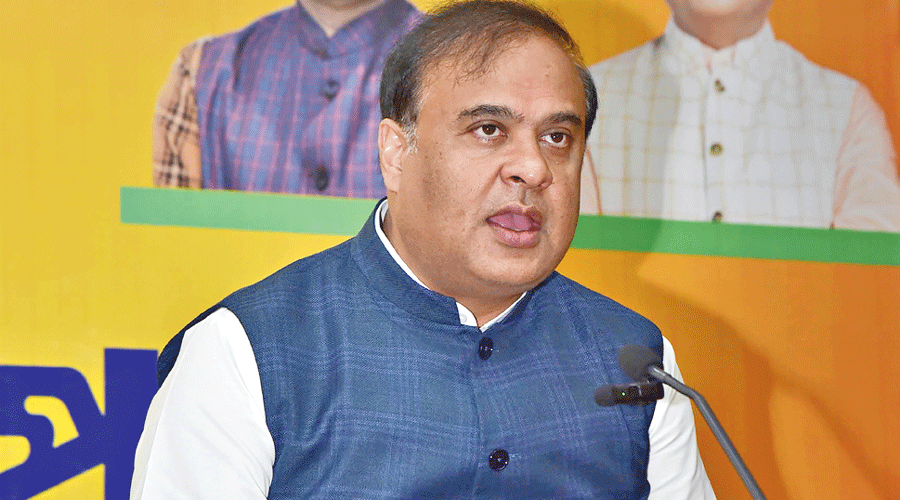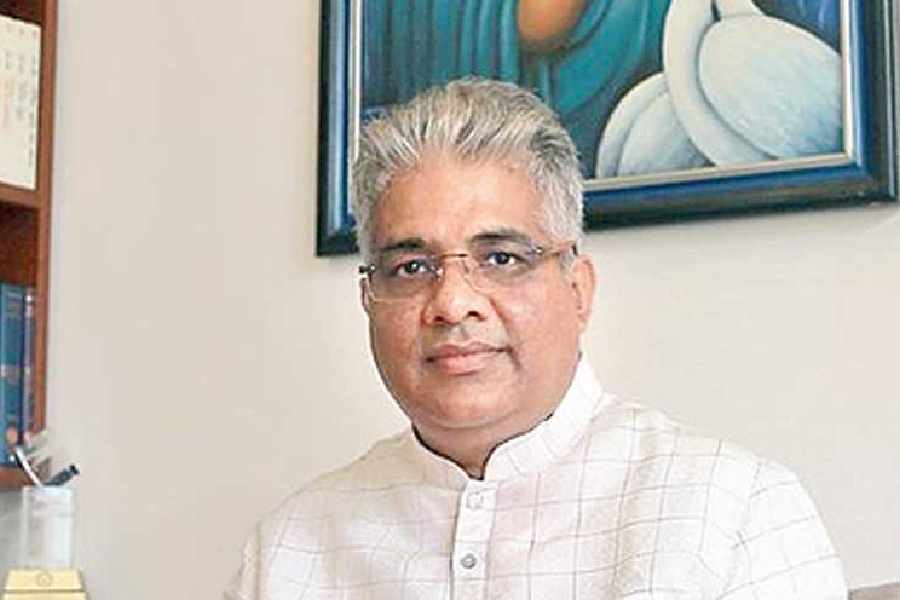A senior tea community leader from Assam, who is also a ruling BJP member, is pushing for a law to regulate the sale of tea gardens for the smooth functioning of the tea industry, one of the mainstays of the state economy.
State BJP executive member Bhagirath Karan has raised the above “issues and problems” faced by the tea industry in a letter written to Assam chief minister Himanta Biswa Sarma on October 17.
“It is to bring to your kind notice that there has been a steep increase in the sale of tea estates by their respective parental tea companies, which has lead to various problems at the governmental side as well as at the tea workers' community’s end. The state government should bring a strong act of law that would aid in the regulation of such sales,” Karan states in his letter.
Besides a law to regulate sale/transfer of tea estates, Karan’s letter also wants the government to put a bar on transfer of land allotted to tea gardens for non-tea activities, to ensure sale of 75 per cent of tea through auction centres and to seek a detailed financial statement of profit and loss from the tea gardens to know the actual market/industry condition.
Hailing from the tea community, Karan, 55, is a former Assam Tea Tribes Students' Association (ATTSA) and ex-chairman of the Assam Pradesh Congress Committee tea cell. He had joined the BJP from the Congress in the run-up to the 2021 Assembly polls, which was won convincingly by the BJP and its allies. The ruling alliance had made welfare of the tea community a key poll plank.
Assam has over 800 tea gardens producing around 700 million kg of tea annually, more than half of India’s annual production. The industry employs directly or indirectly about 30 lakh people.
Karan told The Telegraph that the trigger for seeking a new law to regulate sale/transfer of gardens was the ownership/management of about 70 company or individual tea gardens “changing hands” in the past five years, of which at least 50 were in the past three years, leading to post-sale/transfer inconveniences to both the government and the workforce.
The problematic issues post-sale include pending provident fund dues, arrears wages, arrears bonus, regularising contractual garden workers and committed housing and education facilities, often leading to friction between the employees and the new owners who invariably show these were “not” part of the agreement with the old owners.
“This often leads to friction where the government has to get involved. We want a law where the government involvement is required for such sale or transfer because the garden land belongs to the government. If the government is in the loop, it can check liabilities and commitments and ensure these are implemented by the new owner. Such a law is in the interest of all stakeholders,” Karan said.
His letter alleges tea-estate owners are using government-leased land to avail bank loans to invest in other businesses.
“Such illegal activities foster with the mutual involvement of officials in the state revenue department, bankers, and the tea estate owners. This illegal state of affairs needs due rectification, at the earliest.”
Calling for making government land leased for tea cultivation “non-transferable” in nature, Karan said tea garden owners are “illegally” selling their estates — where private schools, hospitals, private establishments, brickyard, etc have mushroomed. The government should evict all such illegal infrastructures and take back those land and properties, the letter stated.
The veteran tea community leader also highlights how only a meagre 20 per cent of the total tea produced in Assam is sold through public auction and the remaining through private entities.
“At least 75 per cent of the total produce needs to be sold through the public auction window so that we get to know/have an idea of the market condition,” Karan said.
He also wanted tea estate owners to submit a detailed financial statements before the government stating their incomes and expenses because tea-estate owners often talk about the losses they have to run to maintain their tea estates.
“But, seldom has there been any accompanying record to testify the tea company's profits and losses... Also, the government should be duly informed about the capital, from the profits of the company, that is to be reinvested within the tea-estates,” the letter states.
Karan also wants the Tea Board, which monitors the overall development of the tea industry, should take steps to check quality of tea produced by bought tea leaf (BTF) factory besides placing in public domain the list of tea gardens, big or small, availing government schemes.











